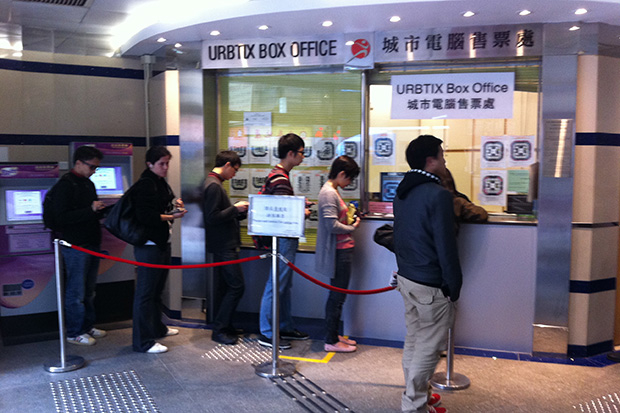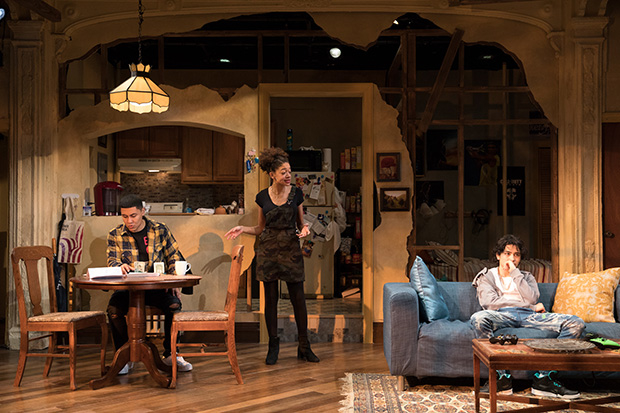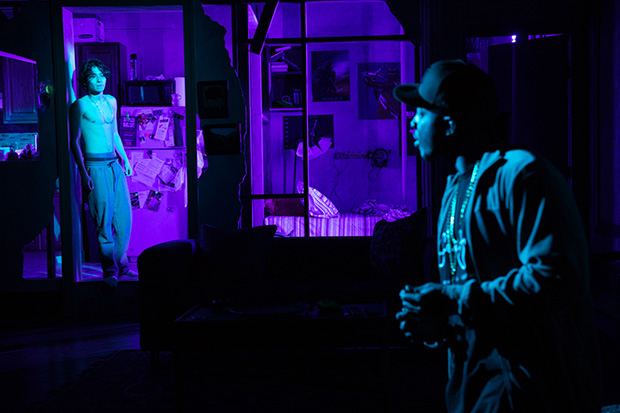Don't Ask for a Refund! Donate Your Ticket Purchase Instead
Theaters will struggle to get through the coronavirus shutdown, but you can help them survive with one simple act.

(© Sei La)
Broadway is completely shut down until at least April 13 due to the coronavirus emergency, and millions of dollars in ticket purchases will be refunded to theatergoers who had booked performances between now and then. This represents an unprecedented crisis for New York's theater industry, the full impact of which has yet to be revealed. Some Broadway observers have speculated that certain shows may never reopen, even after the threat of the virus has subsided. This is a devastating blow to Broadway, and it is going to be even worse for smaller not-for-profit theater companies off- and off-off-Broadway, which regularly produce high-quality shows on shoestring budgets. But there is something you can do to help them:
Donate your ticket purchase to the theater. While all of the companies canceling and postponing runs of shows have plans to refund ticket purchases, you can help them get back on their feet by opting out of a refund and letting the theater keep the proceeds as a tax-deductible donation.
One of the theaters hoping that you will make this decision is Rattlestick Playwrights Theater, a downtown company committed to producing new plays that provoke conversation and social change. Rattlestick's cozy Waverly Place theater is the venue that instantly comes to my mind when I think of off-off-Broadway. While a theater with the audience bathroom behind the stage is a punchline on SNL, it's a reality for this intimate space on the second floor of an old townhouse in the West Village. Despite its size, the theater has mounted some of the best plays I've seen in New York, including Samuel D. Hunter's unforgettable Lewiston / Clarkston.

(© Julietta Cervantes)
I was booked to see the world premiere of Ren Dara Santiago's The Siblings Play on Sunday, March 15, but Rattlestick ceased performances the night before that. Still, the company has committed to paying the entire cast and crew of The Siblings Play through April 5, the original end of the run. Other nonprofit companies have followed suit, including Ma-Yi Theater Company (which was producing the return engagement of Haruna Lee's Suicide Forest) and Axis Theatre Company, which had just started performances of a new adaptation of Henry James's Washington Square. All of the artists involved in these productions will be paid what they expected to be paid for a full run.
"This is not any of their faults, and they will not be able to continue to do work elsewhere at this time," says Rattlestick artistic director Daniella Topol, adding, "It feels really important that we look after one another and honor our commitment to our artists."
Topol notes that many of the artists involved in The Siblings Play were making their professional theatrical debuts, including the playwright (in fact, Santiago is the kind of self-taught dramatist I wish were more welcomed in the New York theater). "There's such a snowball of lost opportunity," laments Topol, who is hopeful that performances will be able to resume in April.

(© Julieta Cervantes)
Because Rattlestick is such a small house and the company is committed to providing affordable tickets (the highest ticket price is $60, with generous discounts for students, seniors, and artists), sales do not account for a majority of any show's budget. According to Topol, the cost of mounting The Siblings Play was roughly $200,000, and she was planning to recoup $30,000-$50,000 in ticket revenue. The rest is covered by grants and donations (this not-for-profit model is very different from Broadway, in which investors put money into a show with the hope of eventually earning a return). Earned income isn't a majority of Rattlestick's revenue, but it's a significant chunk.
Topol estimates that after a week of preview performances, The Siblings Play will make $10,000 in ticket revenue, although it will be higher if every ticket-buyer decides to donate their purchase. The final number is going to be much smaller than what Topol could have expected to earn from a full run, but she is quick to note, "Every penny counts at this moment." And the more pennies Topol has to work with, the more latitude she will have to navigate her theater back to normalcy. So if you have outstanding tickets to The Siblings Play, you should consider donating the cost of the tickets here.
Of course, I understand that theater tickets are expensive, and not everyone can afford to part with that kind of money — especially when this health crisis has imperiled employment for so many New Yorkers. But if you are among the lucky group that enjoys steady income and a cushion of savings, you should really consider letting that money go and purchasing new tickets when the theater comes back online. It may feel like burning cash, but it will help keep the lights on for companies like Rattlestick — and ensure that there is still a vibrant off-off-Broadway theater scene once the virus is vanquished.









